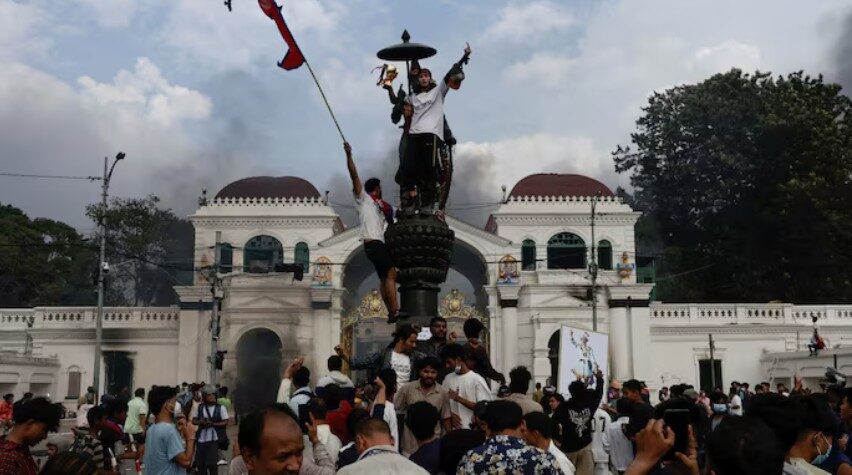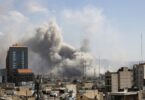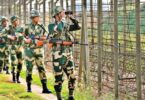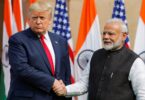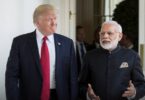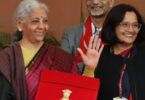The recent horrific episode in Nepal in which 28 protesting youth have been killed and some 400 injured has raised questions whether Nepal’s Prime Minister KP Sharma Oli (a known Beijing puppet) is sanguine that he can act as ruthlessly as the Chinese regime. On September 4, 2025, Nepal banned 26 social media sites, including Meta (Facebook, Instagram, WhatsApp), Alphabet (YouTube), X (formerly Twitter), Reddit, and LinkedIn who had reportedly not submitted applications for registering with the government by the deadline of August 28. In 2024, Nepal’s Supreme Court reportedly gave directions that social media platforms establish a point of contact and name a resident grievance handling officer and compliance officer. Notably, Chinese apps were not banned albeit the Oli government claimed that they follow Nepal’s regulations.
The protests, which started in Kathmandu, quickly spread to 77 districts of Nepal. Curfew was imposed in several areas, including Baneshwor, Singhadurbar, Narayanhiti, and sensitive government areas. Massive crowds gathered in front of Nepal’s Parliament. The army had to be deployed in the New Baneshwor area after the protests turned violent. On September 9, Nepal lifted the social media ban. Nepal’s Home Minister Ramesh Lekhak has resigned and Oli has ordered a probe. The government issued a statement saying that it respects freedom of thought and expression and was committed to "creating an environment for their protection and unfettered use".
The ban on social media is not all why Nepal is burning. Binoj Basnyat, former Major General of Nepalese Army has pointed to the unprecedented dual crisis confronting Nepal; Gen Z-led protests within Nepal and massive exodus abroad; two fronts of the same national security crisis – depopulation and destabilization. Some 9,00,000 Nepalese move abroad annually (excluding those migrating to India or without documentation) and 2,000+ working-age citizens leave Nepal on an average daily. The disconnect between urgent realities of state security and the political leadership’s inability to forge a coherent security/political order is widening with political parties focused on immediate elections. The structural rot in governance remains unaddressed (https://english.khabarhub.com/2025/08/495077/).
Nepal has been in China’s crosshairs since the Mao Zhedong era when Beijing initiated Maoist insurgency in Nepal as a long-term strategic move, eventually leading to communist rule in Nepal intermittently or with communist support. Oli and Puspa Kamal Dahal (called Prachanda) have been China’s blue-eyed boys from the insurgency days – with both holding the appointment of Nepal’s prime minister thrice, including Oli’s present term. Even before Prachanda became prime minister for the first time, he told the Nepalese: “Our ultimate fight will be with the Indian Army”. Prachanda has always been accorded a red carpet when visiting Beijing, even when he was not Nepal’s prime minister.

During Oli’s visit to Beijing in March 2016, Nepal and China signed the Transit and Transport Agreement (TTA) to access China from six checkpoints; it was Nepal which sought access to the Chinese ports. Nepal took this step because of the prolonged blockade of the India-Nepal border during 2015-2016, causing severe fuel and medicine shortages for months – brainchild of National Security Adviser Ajit Doval playing ‘big brother’ despite hyping “Neighbours First”. Nepal joined China’s Belt and Road Initiative in 2017.
In 2020, a report by the ‘Global Watch’. calling Oli corrupt, stated that Nepal is a “classic example” of how China uses corrupt leaders to make inroads into weaker countries. The charges against Oli were serious. During his first stint as prime minister, Oli tried to invest in the telecom sector of Cambodia. Reports said the then Chinese ambassador to Nepal Wu Chuntai had extended assistance to Oli for the deal. In his second term, Oli used his powers to award contracts to Chinese companies; several deals struck under Oli were under scanner like the agreement to set up a digital action room with video conferencing facilities in the prime minister’s office. The contract reportedly went to China communication service, a subsidiary of Huawei without any competitive bid.
Another deal under scrutiny was a contract to build Nepal’s largest hydropower project which went to a Chinese state-owned company, again without a competitive bid. Oli overturned a decision by his predecessor Sher Bahadur Deuba while in office, when Deuba had decided to not award the contract to the Chinese. Oli’s rapid rise in personal wealth also added to the suspicion. According to the Global Watch, more than USD 5 million dollars in the Geneva branch of the Mirabaud bank belonged to KP Sharma Oli. The money had been invested in long term deposits and shares and that these investments gave Oli and his wife half a million dollars every year. Oli’s inner circle (health minister, several government members and several senior advisers of Oli) also faced serious corruption charges with several members of his government accused of taking kickbacks; including over the purchase of Chinese equipment like personal protection kits and testing machines. Oli tried to downplay these reports but young Nepalese even then had taken to the streets against Oli and his government, but the protests were suppressed.
Hou Yanqi, China’s ambassador to Nepal in 2020 played a crucial role in turning Nepal against India. Posted earlier as China’s ambassador to Nepal, Yanqi had a special hold on not only on Prime Minister KP Sharma Oli, but also direct access to his office, advisors, the army chief and virtually to any official/place in Nepal. Nepalese President Bidhya Devi Bhandari Invited her for an exclusive dinner, and the tourism minister organized special outdoor photoshoots for her. In 2020, when India inaugurated the Dharchula-Lipulekh Link Road, Nepal released and passed a new political map claiming the Indian territories of Kalapani, Limpiyadhura and Lipulekh – a pre-planned move with obvious Chinese blessings; Hou Yanqi-KP Sharma Oli collusion (https://www.facebook.com/IndianMilitaryUpdate/posts/doyouknow-hou-yanqi-chinese-ambassador-in-nepal-is-in-the-news-as-she-played-a-b/971010903356547/). In fact, the Oli-led Nepalese Parliament passed a new map showing Lipulekh, Kalapani and all areas north of the river Kuthi Yangti up to its source at Limpiyadhura on the main Himalayan watershed (totaling about 370 sq km) in its territory. These areas fall in Pithoragarh district of Uttarakhand and India holds posts in Kalapani since 1962, but Nepal claims the British gave this area to Nepal in 1816 by the Treaty of Saguali.
The Indian government’s decision to stop regular recruitment in the army broke the decades-old bond between the armies of India and Nepal, denying some 1,300 Nepalese Gorkhas service in the Indian Army as regulars. China, which already has Tibetans in the PLA, is keen to recruit Nepalese soldiers. Whenever Kathmandu came under communist rule, Pakistan’s ISI made bigger inroads in Nepal. Now Nepalese officers are being trained in the Pakistan Military Academy. Nepal permitted China oil drilling in the Terai region bordering India and 30 Chinese NGOs to penetrate Nepal’s social sector.
In recent India-China parleys, post the POTUS Donald Trump’s tariffs tsunami, threatening more tariffs against countries buying oil from Russia, as well as diatribes against BRICS, both countries have agreed to open border trade through Nathu La Pass in Sikkim, Shipki La in Himachal Pradesh and Lipulekh Pass in Uttrakhand. Oli has raised an objection to India-China trade through Lipulekh. But this is more of a token protest since Oli has no option but to wag his tail for his masters in Beijing.
The public discontent in Nepal, especially in the youth has been growing for a long time; which can be gauged from the above, particularly the issues highlighted by Binoj Basnyat. The public ban on social media no doubt acted as a catalyst for the Gen Z protests but the reasons of public discontent are far greater. Considering the changed geostrategic global environment following Trump assuming his second presidency, there is speculation that the US used this opportunity to destabilize Nepal and its China-supported government in order to indirectly pressure China, as well as India. The US is adept in grey zone operations. The regime change in Bangladesh, which they created, and the nurturing of Pakistan as a proxy against India, gives credence to this. Moreover, this would be far easier for the Trump administration than trying to install listening devices in North Korea by deploying Seal Team 6.
Interestingly, China’s Ministry of State Security revealed on September 9, 2025, that a foreign organization sent operatives into remote southwestern regions in China disguised as mountaineers and charity workers, where they posed as providing medical aid to gain villagers’ trust and recruit guides to illegally investigate into local politics, economy, geographic resources, and social governance.
China’s Ministry of State Security on Tuesday revealed that a foreign organization sent operatives into remote southwestern regions in China disguised as mountaineers and charity workers, where they posed as providing medical aid to gain villagers’ trust and recruit guides to… pic.twitter.com/WkCOFKNMf5
— Global Times (@globaltimesnews) September 9, 2025
China has not named the organization and where it is based. But who can be behind such an operation if not the US Secretary of War?
The latest is that the two-day unrest in Nepal has led to the resignation of President Ram Chandra Poudel and Prime Minister Oli, as well as Home Minister Ramesh Lekhak, Agriculture Minister Ramnath Adhikari, Youth and Sports Minister Teju Lal Chaudhary, and Water Minister Pradeep Yadav. After the tectonic changes, the PM stated: “In view of the adverse situation in the country, I have resigned effective today to facilitate the solution to the problem and to help resolve it politically in accordance with the Constitution.” Whether they both resigned on Chinese advice is not known. But the situation may continue to get murkier unless the next government goes for constitutional and political reforms to address the rot that has set in.
The author is an Indian Army veteran. Views expressed are personal.



